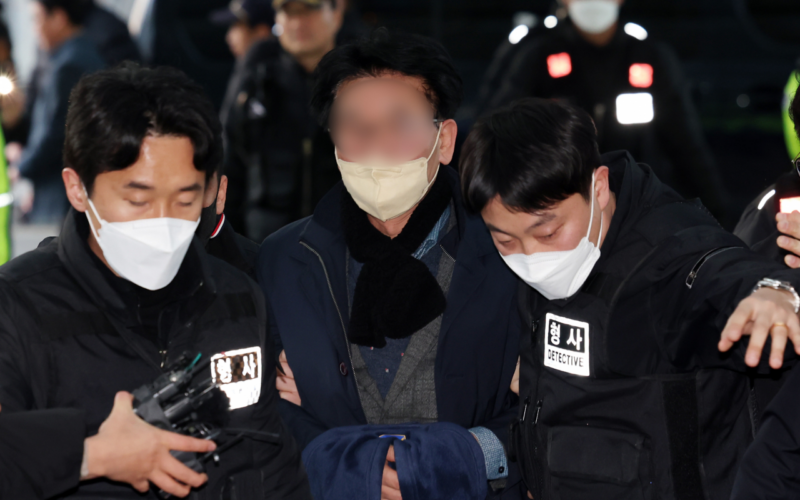A court in Busan has sentenced Kim Jin-seong to 15 years in prison for the attempted murder of Lee Jae-myung, a former leader of South Korea’s main opposition party, the Democratic Party. The attack on January 2, which occurred in the port city, involved Mr. Kim stabbing Mr. Lee in the neck as the politician was moving through a crowd after visiting a proposed airport site. The assault left Mr. Lee with severe injuries to his jugular vein, necessitating intensive care and an eight-day hospital stay.
Mr. Kim, a real estate agent born in 1957, meticulously planned the attack, according to police. He had previously stalked Mr. Lee at various rallies and had penned an eight-page manifesto with the aim of preventing Mr. Lee from becoming president. Authorities reported that Mr. Kim, identified only by his surname in official reports, was driven by a deep-seated political conviction against Mr. Lee, a prominent liberal figure who narrowly lost the 2022 presidential election.
The attack shocked South Korea, which has experienced relative political calm since democratization in the 1990s. Political violence, a hallmark of the country’s past, resurfaced with this incident, highlighting increasing political polarization and extreme online rhetoric.
The sentencing of Mr. Kim by a Busan court marks the end of a trial where he was convicted of attempted murder and violations of election laws. Mr. Kim has been given a week to appeal both the conviction and the sentence. The court’s ruling emphasizes the severity of the offense and reflects concerns over political violence in the country.
The January stabbing of Mr. Lee represents the most serious assault on a South Korean politician in almost two decades. The last notable incident occurred in 2006, when Park Geun-hye, an opposition leader and later president, was attacked with a box cutter. This resurgence of political violence has raised alarms about the country’s current political climate.
The attack not only targeted Mr. Lee but also intensified the ongoing political tensions between him and President Yoon Suk Yeol. Since losing the 2022 election, Mr. Lee has faced corruption charges, which he claims are part of an intimidation tactic by President Yoon’s administration. The president has denied these allegations.
The incident has underscored the growing political divide in South Korea and prompted discussions on the safety of public figures. It occurred against a backdrop of rising political rivalry and has had a significant impact on the nation’s political discourse. Days after Mr. Lee’s recovery, another attack occurred involving a conservative lawmaker, further demonstrating the escalating tensions.
Mr. Lee resigned from his role as leader of the Democratic Party last week, adhering to party rules that require a leader to step down before running for re-election. Despite the attack and ongoing legal battles, he plans to seek another term in leadership, continuing to play a central role in South Korean politics.
The sentencing of Kim Jin-seong brings a significant chapter in South Korea’s political narrative to a close but also serves as a stark reminder of the deepening political divisions within the country. As Mr. Lee recuperates and resumes his political career, the broader implications for political safety and polarization remain pressing issues for South Korean society.








